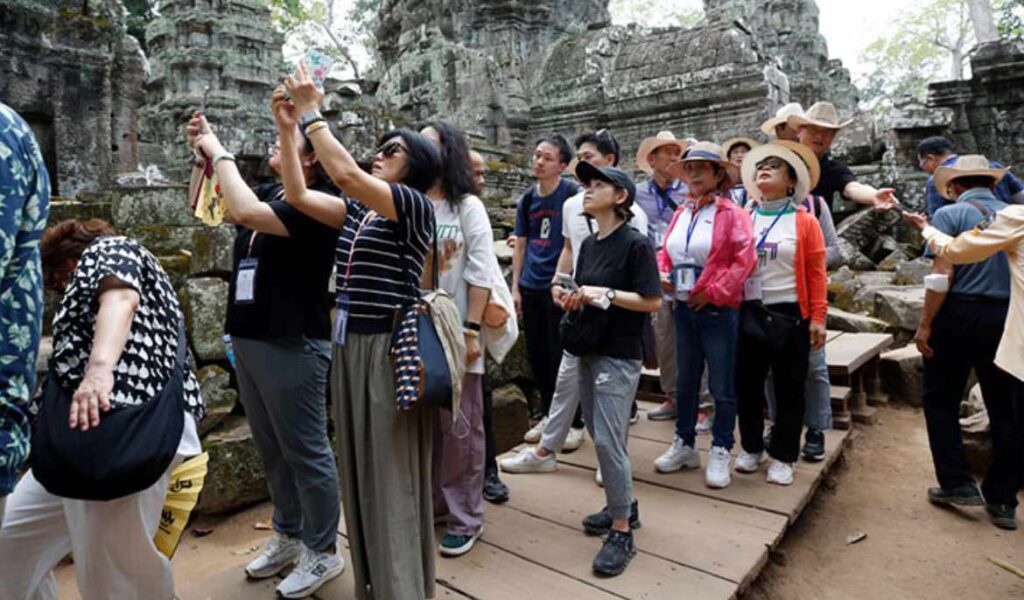Cambodia has recorded a 67.6 percent increase in the number of Chinese tourists in the first two months of 2025, said the Cambodian Ministry of Tourism’s report released on Monday.
A total of 184,372 Chinese visitors traveled to the Southeast Asian country during the January-February period of this year, representing a 67.6 percent increase from 109,990 over the same period last year, according to the report.
The number of Chinese tourists accounted for 14.6 percent of the total 1.26 million international tourist arrivals to Cambodia, the report said, adding that China was the third-biggest source of foreign holidaymakers to the kingdom after Thailand and Vietnam.
Hun Dany, Secretary of State and Spokeswoman for the Ministry of Tourism, stated that Cambodia and China have enjoyed fruitful cooperation in the tourism sector, with China being the largest tourist market for Cambodia.
Cambodia is expected to attract more than 1 million Chinese tourists in 2025, she said at a forum on Cambodia-China relations in Phnom Penh on Monday.
According to the spokeswoman, Cambodia attracted nearly 850,000 Chinese visitors in 2024, representing a 55 percent year-on-year increase.
Dany said the Belt and Road Initiative (BRI) has also boosted the development of Cambodia’s tourism sector, as BRI flagship projects, such as the Phnom Penh-Sihanoukville Expressway and the Siem Reap Angkor International Airport, have played an essential role in facilitating tourists’ travel.
Tourism is one of the four pillars supporting Cambodia’s economy, alongside garment, footwear, and travel goods exports, agriculture, and construction and real estate.
The country has four UNESCO-listed world heritage sites, namely the Angkor Archaeological Park in northwest Siem Reap province, the Temple Zone of Sambor Prei Kuk in central Kampong Thom province, the Temple of Preah Vihear and the Koh Ker archaeological site in northwest Preah Vihear province.
Besides, it has a pristine coastline stretching for about 450 km in the four southwest provinces of Sihanoukville, Kampot, Kep, and Koh Kong. Xinhua



